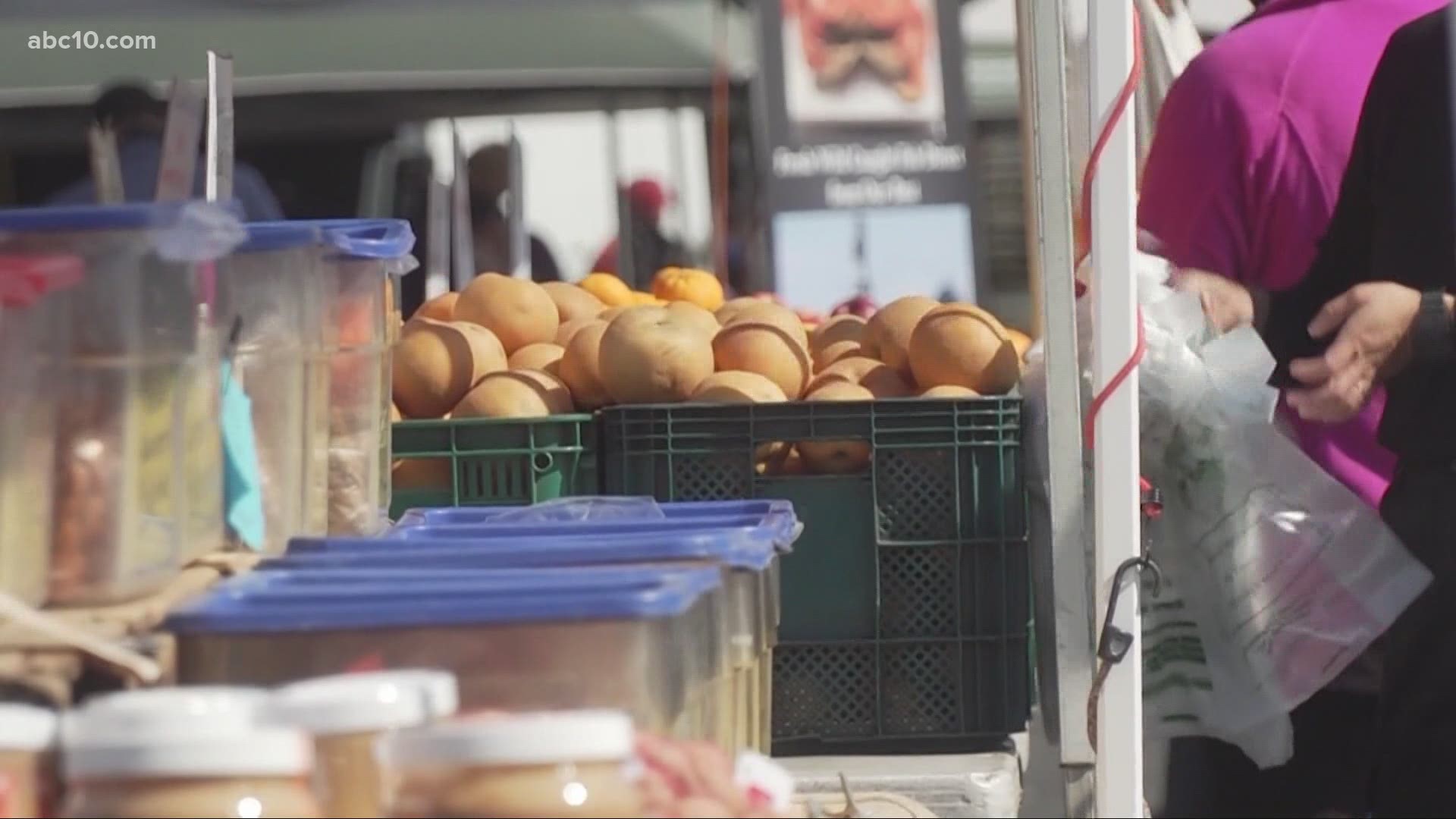SACRAMENTO, Calif. — California shoppers may notice food prices rising at grocery stores across the state, reflecting national trends.
Experts say it's part of the continued economic impact of the COVID-19 pandemic, but growers in the Central Valley now face added pressure thanks to the California drought.
"That's a major cost," said Dan Best, coordinator for Certified Farmer's Market in Sacramento. "And if you can't afford [water] you don't farm."
RELATED: 'California is in a critically dry year' | Snowpack survey sparks fear of impending drought
Snowpack statewide is only at 59% of its April 1 average, based on electronic measurements according to the California Department of Water Resources. Farmers in the Central Valley producing water-intensive crops such as almonds and tomatoes are already facing some difficult choices.
"It's really serious, particularly in the Central Valley," said UC-Davis Agricultural Economist Daniel Sumner.
The U.S. Department of Agriculture Food Price Outlook shows prices of staple foods such as meats, poultry, and fish as well as fruits and vegetables outpacing the 20-year historical averages.
According to Sumner, that can be attributed in part to rising fuel and labor costs associated with the COVID-19 pandemic. The drought may not cause prices to rise in the near term, but shoppers could feel the impact in the coming months.
"The cost of water, the scarcity of water adds into all the costs of food throughout the system," Sumner said.
Some Central Valley farms could lose money this year irrigating fruit-bearing trees in order for them to survive to another harvest next year.
"We’re very fortunate in this area that we are surrounded by agriculture," Best said, adding that he hopes local consumers will continue to support their local growers.
"So as long as we keep those small farms and those family farms viable and economically sustainable, then we will always have a food supply in this area," he continued.
Continue the conversation with Luke on Facebook.



















